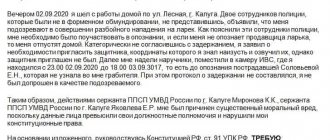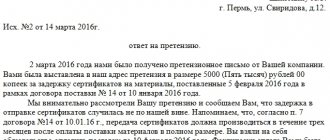Fraud means theft or acquisition of rights to someone else's property through deception or breach of trust. This is stated in Article 159 of the Criminal Code of the Russian Federation. In criminal practice, this is a fairly common type of crime and often causes a lot of controversy among lawyers. If a person is accused of fraud, the first thing you need to do is figure out what he actually did.
This article will tell you in detail how to determine the presence of guilt, what can serve as evidence of it, as well as what stages of pre-investigation and investigative actions exist.
How to determine the presence of guilt?
Guilt is the attitude of the accused towards the fraud committed. First of all, it is necessary to determine whether the defendant is guilty of the plaintiff or not. Depending on this, the further actions of the accused are determined. The signs of guilt are not enshrined in Russian legislation.
However, the presence of guilt can be determined by asking the question, did the act committed have an intentional form? If yes, most likely the court will admit the defendant’s guilt; if not, there is a possibility of referring to some amendments to the Criminal Code. In other words, the main thing is not to lie to yourself and answer the question - are you being accused “for the cause” or falsely? If the first, there is guilt. If the latter, there is no guilt.
What to do if you have it?
If the defendant is guilty of fraud and strong evidence is presented against him, then he should admit his guilt and mitigate the damage as quickly as possible. This will stop the legal process before a criminal case is filed.
A good lawyer will help turn the situation around so that the accused is not sentenced , implying a large fine, including legal costs and, especially, forced imprisonment.
We talked about the amount at which criminal liability for fraud begins here, and from this article you will learn about the terms of restriction and imprisonment under Article 159 of the Criminal Code of the Russian Federation.
What to do in its absence?
If the defendant is sure that he is not guilty of committing fraud, then his main task is to stand his ground to the end and prove the plaintiff’s innocence. You should not rely solely on justice and refuse a lawyer. A specialist will help refute the evidence presented by the accuser and drop the charges.
What are the responsibilities?
Even if you know that you are not guilty, it will not hurt to know what punishment is due under the article that is assigned to you. This way you can understand how justified the charges are. The minimum penalty for a crime may be a fine. The amount varies, sometimes it reaches 500 thousand rubles. According to some parts of the article, imprisonment along with the application of penalties is provided.
The term of imprisonment depends on the severity of the crime, the fact of admission/non-admission of guilt, and qualifications. If you do not have a legal education, it will be difficult to understand the intricacies of the law. Only a lawyer can help in a complex case; you need to contact him as soon as possible.
Proof
In order for a person who committed fraudulent actions to be punished, the fact of the crime must be proven.
In the case of Article 159, the plaintiff must prove the presence of malicious intent , that is, confirm the existence of deception or breach of trust.
Evidence of fraud will be:
- providing knowingly false information to the victim;
- concealment of information about the transaction;
- providing false information;
- committing actions that subsequently contributed to the commission of illegal actions, for example, misleading the victim.
Attention! The deception must be intentional. Otherwise, it is not classified under Article 159.
Evidence of breach of trust is:
- lack of supporting documents and witnesses for the transfer of finances, property or securities;
- falsification of documents allowing the parties to trust each other;
- the fraudster has gained the victim’s trust through social status or financial means;
- the fraudster received an advance payment, thereby confirming his readiness to fulfill his obligations.
When is evidence considered illegal?
The following cannot be attached to the case as evidence of guilt:
- information or data obtained illegally;
- guesses, opinions or assumptions;
- information obtained from sources not provided for by law;
- excerpts from television programs, newspaper and magazine clippings;
- information obtained from operational investigative activities of a covert nature.
In other words, if the plaintiff has such evidence as described above, he will most likely win the case; if he does not, you, the defendant, will win.
What if the receipt was related to the execution of the transaction?
When making oral transactions, receipts are often issued confirming receipt of money for a product or service. The most common fraud in such cases is denial of receipt of funds.
Again, in order to be able to punish the fraudster, you need to oblige your partners to indicate in the receipt the purpose of the funds received. Otherwise, the fraudster can say that this is a loan, return the money and demand the property back. Or that this money relates to a completely different transaction altogether.
But the law in this case is on the side of bona fide counterparties. A receipt is recognized as adequate confirmation of receipt of money even in those transactions where the law prohibits cash payments. For example, between legal entities.
How does the pre-investigation stage take place?
To initiate a case, the injured party must file an appropriate fraud claim. After this, the stage of confirming the signs of a crime through verification actions begins, which may include:
- interviewing witnesses;
- requesting documentation;
- validation studies;
- other events.
Important! The duration of pre-investigation actions depends on the volume of actions and can take up to 30 days.
The law allows the participation of a lawyer at the pre-investigation stage . Practice shows that in this case there is a high probability that the parties will reach an agreement before initiating a criminal case.
If circumstances go against the defendant, there is the possibility of compensation for damages to the plaintiff. This will lead to a loss of incentive for further proceedings, as well as bringing the perpetrator to criminal liability.
Investigative actions
The stage of investigative actions can be divided into components:
- Investigative actions begin with repeated interrogation of the victim.
The questions asked are the same as at the stage of initiating a case. The goal is to provide more detailed indications. Repeated interrogation helps fill in the gaps in existing information, as well as supplement the case with previously forgotten circumstances. In some cases, the plaintiff’s words can be confirmed by photographs, video or audio materials confirming his words. - Next, witness statements are collected. Just like the plaintiff’s testimony, they may be more detailed and contain new data than collected at the stage of pre-investigation actions.
- At the initial stage of the investigation, an inspection of the scene of the incident, as well as the means and instruments of the crime, is carried out. This includes items of clothing and personal belongings of the suspect.
- If the case contains a large number of documents confirming fraudulent actions, their search, seizure and careful study by the investigator will begin.
Copies will be made of them and added to the materials of the criminal case. Some constituent documents are confiscated not only from the organization itself, but also from banking institutions, the registration chamber, etc. Particular attention is paid to documents confirming monetary or property transactions - contracts, receipts, promissory notes. - At this stage of the investigative actions, the main forensic examinations are carried out. These include: traceological, handwriting, author's, commodity, economic, technical and forensic examinations.
- A seizure and search is carried out in order to discover means and instruments of crime, documents.
- If the victim and suspect did not know each other before, an identification process takes place. It is carried out only when there is no doubt about a positive result. As a rule, the investigation is in no hurry at this stage.
- Interrogation of a suspect is one of the most complex and time-consuming investigative actions. If the investigation has enough evidence against the defendant, there is no point in denying guilt; this will serve as another basis for suspicion of fraud.
What is a receipt?
A receipt is a written document confirming the fact of transfer and receipt of money or material assets, as well as the grounds for such actions. A receipt is written in the case of oral agreements, and confirms that the parties to such an oral agreement have fulfilled their obligations.
The receipt may not be notarized. To protect yourself, when transferring and receiving money, you can invite witnesses who will also write on the receipt that they were present during the transfer and receipt of money, and also know why the money was transferred.
Trial
The further stage is directly related to the filing of charges. It must be finalized by the time the investigation is completed. Then the case goes to court and the legal prairies begin. They take place in a standard manner: both parties gather in the courtroom and defend their side.
All interested parties gather in the courthouse to announce the verdict. The judge makes a final verdict, after which there are two options for the development of events:
- the sentence comes into force, the accused begins to carry out the punishment;
- The verdict is being appealed.
Appeal
An appeal in a criminal case allows you to appeal a court decision or an already passed sentence that has not yet entered into legal force. This opportunity is regulated by law and has its own characteristics.
An appeal can be filed by an accused or convicted person against whom a criminal case has been initiated under an article of fraud. In addition to him, this can be done by the acquitted person, the victim, the prosecutor, the prosecutor, as well as representatives of the parties. The remaining participants in the process have the right to appeal the court decision only to the extent that affects their rights.
Important! Relatives and witnesses of participants in the process cannot appeal the court decision.
You can appeal:
- final court ruling that has not yet entered into legal force;
- an interim decision made in a trial.
Where to submit?
You must appeal to the court that issued the sentence . This authority will refer the complaint to a second instance. According to Article 389.3 of the Code of Criminal Procedure of the Russian Federation, if a verdict for fraud was rendered in a magistrate’s court, then for further proceedings one should apply to the district court.
If the first instance was the district court, then the second instance will be either the supreme or regional court. The authority that accepted the appeal must notify the participants in the process of its receipt.
Deadlines
Article 389.4 of the Code of Criminal Procedure of the Russian Federation specifies the time frame within which a court decision can be appealed - 10 days from the date of the verdict. If the defendant is in custody, the calculation of the period will begin from the moment a copy of the decision is served on him.
If the deadline for consideration of the appeal has been missed, then the filed complaint remains without consideration . The opportunity to challenge a court decision remains in cases where it was not possible to appeal on time for a valid reason.
Attention! Before the consideration of the complaint begins, it can be withdrawn and the appeal proceedings can be terminated.
The law establishes time limits for considering an appeal in a criminal case. In the district court the complaint must be considered within 15 days, in the regional or regional court within 30 days, in the supreme court within 45 days.
What to include in a complaint?
The appeal must indicate:
- name of the court of second instance;
- details of the person filing the complaint;
- the date and number of the case, as well as the name of the court that made the decision that is being appealed;
- rights that were violated by this decision, as well as references to legislative norms;
- list of attached documents;
- signature of the person filing the complaint;
- date of filing.
Additional information may be attached to the case materials to prove the applicant’s position. These can be documents: certificates, receipts or certified testimony of witnesses. In addition, you will need to attach an explanatory statement answering the question of why this data was not provided to the court during the initial consideration of the case.
You can file an appeal either in person or on the official website of the court, as well as send a letter with notification. If the appeal is filed by a representative, then there must be a document confirming the authority of this person.
Audio and video evidence
An effective way to prove that money has been transferred to a fraudster is to record a conversation with him in which he admits receiving it. The conversation may be about the fact that he borrowed a certain amount of money, but has not yet returned it.
It is important to make a number of preparations before creating such an audio recording:
- Before the conversation, state the date and time of the call.
- Record phone numbers, both incoming and outgoing.
- Indicate the names and addresses of phone owners.
The recording must be of high quality so that everything that is said can be heard. In the conversation you need to talk about the amount of the debt and the purpose of its transfer, the date of transfer and voice the requirement to repay the debt within the specified period.
After the conversation, you need to record its duration and the exact end time. You will also have to draw up a protocol with a transcript of the conversation and an additional description of the details of communication with the debtor.
If you managed to meet the borrower in person, you should ask someone to film your conversation with a hidden camera. This will be additional powerful evidence in court.
Choosing a Qualified Lawyer
If you are accused of fraud, regardless of the degree of guilt, the first thing you need to think about is a good defense . A criminal lawyer must meet a number of criteria by which he must be selected. Tips on how to choose a criminal lawyer:
- Cost of services. A good lawyer cannot be cheap, much less free. For the same reason, you should not contact specialists offering a “free consultation”.
- Reputation. A lawyer must have experience and a reputation with clients. A good indicator would be a recommendation from a close friend or other authoritative person.
- Education. The level of education of a criminal lawyer is an important indicator of his professionalism. In addition to higher education, he must be included in the register of the Bar Association and have the status of a lawyer. You can find out this via the Internet.
- Practice. The lawyer's experience and the number of cases won will tell a lot about professionalism.
- Specialization. The narrower it is, the better the lawyer understands the chosen topic. If you have been accused of fraud, you should contact a specialist who deals with similar criminal cases.
- Appearance and manners. The person who will defend the defendant in court should be pleasant to talk to and not cause negative emotions.
- Place of work. A good law firm is immediately visible. You shouldn’t trust a cramped office with a monthly rent on the outskirts of the city.
- Problem assessment. A lawyer should not promise to win even the most disastrous case from the first seconds of meeting you. Trust must be derived from a reasonable approach. A good lawyer will name the realistic chances after studying the case materials.
- Website on the Internet. Before contacting, you should study the website of the lawyer or his law office. A page on the Internet will give an initial idea of the success of a specialist.
- Personal qualities. A lawyer must inspire trust, otherwise the business relationship may not work out in vain.
If you get scammed in online stores
Deception on the Internet
The first step is an attempt at a peaceful settlement by writing a letter to the seller.
An additional letter can be sent to the actual address if it is indicated on the official page.
If an advance payment has been made, then a demand is made for a refund or exchange of goods.
The buyer has the right to simply cancel their purchase. It is not necessary to explain the reason. If such requests are ignored, they move on to the next step - appealing to the courts.
The following additional information is attached to the application:
- Website address.
- Nickname of the attacker.
- The account or electronic wallet that was used for payment.
- Phone number if you received a message from scammers.
- E-mail address.
- Any other information that became known to the victim.
If nothing is known about the scammers at all, then all that remains is to contact the police. To tell them and describe in detail what happened.
There is a special department “K”, operating under the Russian Ministry of Internal Affairs. This department fights scammers who work via the Internet. It will also help you understand how to prove fraud on the Internet.
How to prove the absence of intent?
According to statistics, most criminal offenses are committed intentionally . But the fact of fraud is not always obvious and involves deliberate actions. How to prove that there was no premeditation in committing a crime? By this word, legislation means an act committed with direct or indirect intent.
Direct intent implies awareness of the possible public danger from one’s actions, as well as the occurrence of consequences and the desire for their occurrence. Indirect intent is distinguished by the fact that a person does not want, but consciously allows these consequences or is indifferent to them.
Based on the definition, we can conclude that there is no intent in cases where the accused:
- did not want consequences to occur after committing fraud;
- could not foresee them;
- did not realize the danger of his actions.
Attention! To prove intent, the prosecution can provide a number of evidence, for example, prepared means at hand.
There are two types of criminal intent: premeditated and sudden. The lawyer can offer the accused three options:
- admit the presence of intent;
- admit that intent arose before committing fraudulent acts;
- defend the position that the defendant could not foresee the danger of the actions to others.
The latter option requires a separate investigation. To do this, you need to collect the following evidence:
- witness statements;
- photo, video or audio recording;
- chat on the Internet;
- complaints against the investigator or interrogating officer;
- filing various types of petitions;
- other evidence.
In some cases, it may be necessary to prove that the defendant did not give an account of his actions because he was in a state of passion.
Features of the charges
Coming from the employer
In cases where an employer accuses an employee of fraud, there are specific features. When receiving claims from superiors, the employee must keep in mind that it is the employer who must prove his guilt in causing the damage. This must be confirmed by an inventory report, defective statement, commercial report or other reporting document.
If the procedure for conducting an inventory was violated, then the court, in most cases, does not recognize its results. This means that this will not constitute reliable evidence. In addition, the employer must prove the amount of damage. He will have to do this in court.
first be familiar with the documents confirming the suspicion of fraud . The employer is obliged to first request an explanation, and only then contact law enforcement agencies.
Fraud or civil dispute?
The investigation is, of course, capable of clearly distinguishing between deception and civil law relations, but the police have no particular desire to do this either at the stage of investigation or at the court at the stage of trial. Especially if the person accused of fraud by deception does not particularly insist on his innocence. The court simply takes the received criminal case and its evidence base for granted and does not take into account the weak attempts of resistance on the part of the defendant. And if he was convinced of a special procedure, then the matter goes off with a bang.
Despite the provisions of the Constitution and the presumption of innocence, all concerns about collecting evidence of innocence one way or another fall on the defense and the defendant’s lawyer . Due to, as noted above, the accusatory bias of the judicial system, assigning the responsibility of proving the guilt of the accused to the prosecution plays a cruel joke on citizens: they do not seem to be obliged to confirm their innocence, but are a priori guilty from the moment the case comes to court.








